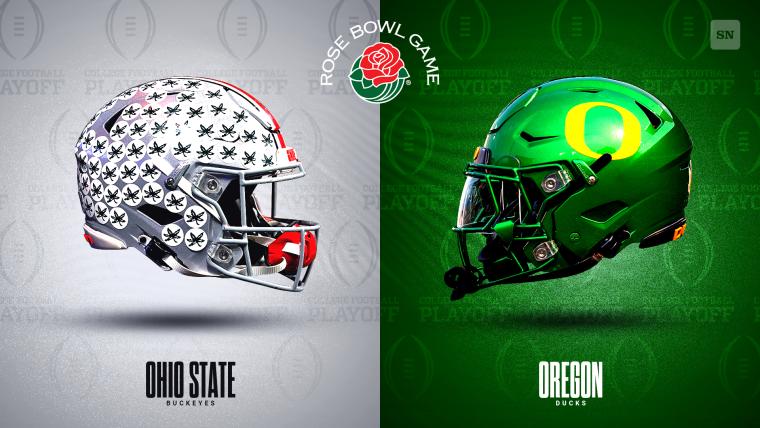Booger McFarland has had a change of heart this postseason regarding the College Football Playoff (CFP) format. Initially skeptical about the expansion from four to twelve teams, McFarland now sees the benefits of this new setup. His transformation in perspective came during a recent appearance on ‘Andy & Ari On3,’ where he shared his thoughts on how the playoff has positively impacted college football.
Embracing the 12-Team Format
“I do think that the 12-team playoff – and let me first say this. I was against it. See, I don’t need to include everybody. I don’t think there’s 12 teams that can win a national championship in college football,” McFarland admitted. However, he quickly followed up with a revelation: “What I will say is the College Football Playoff, this 12-team format, really made me change my mind because it’s been really, really good for college football.”
The inclusivity of the new playoff structure is what ultimately swayed McFarland’s opinion. With more programs and fanbases engaged throughout the season, the stakes have been raised, especially as the regular season draws to a close. This, he believes, has made college football more exciting and relevant for fans.
More Meaningful Games
“I think the 12-team playoff was designed to include more people. It did that,” McFarland noted. “It was designed to kind of galvanize college football. That way, there were more meaningful games throughout the season, longer in the season. We didn’t just get to the point where, if you weren’t in the top-four, you didn’t pay attention to college football.”
This shift has created a buzz around the sport, keeping fans invested in teams that may not have had a shot at the championship in previous years. The excitement surrounding these games has made the regular season feel more consequential, and that’s a win for everyone involved.
Concerns About Seeding and Byes
Despite his newfound enthusiasm, McFarland does have some reservations about the playoff’s current structure, particularly regarding seeding and the allocation of byes. “There’s been a lot of talk about, you know, your conference champion getting byes. They should just get in the tournament and not get a bye,” he explained.
He acknowledged that changes to this aspect of the playoff won’t happen until at least the 2026 season, as a unanimous decision is required to make any adjustments. “So, for ’25, it’s not changing because, if you’re the Big 12 and you’re the ACC? You’re not changing this. Like, it’s going to be this way in ’25. Now, ’26, they may change it, which they probably will,” he stated.
The Debate Over Home Games
McFarland believes that the current system might not be the best approach. “You would like to see the best four teams get the bye. And, to be honest with you, all four teams that had byes lost. So, like, the bye – was it rushed? Or was it the fact that we gave the wrong teams the byes? Like, that’ll be a debate.”
In light of this, he proposes an alternative: instead of byes, top seeds should host home playoff games. “I do like the aspect of hosting a home playoff game though. To me, there’s nothing like the college football atmosphere on your campus,” McFarland said enthusiastically.
Imagine the thrill of a playoff game under the lights at a school like LSU, Oklahoma, or Kansas State. “If you’re healthy, I may not even want a bye. If you can host a game, a playoff game on your campus, especially at night? Man, talk about the revenue, talk about the fanbase, talk about the pageantry and tradition on your campus. I think that’s something that’s been really, really neat about the playoffs,” he added.
The Success of the New Playoff Format
As the College Football Playoff continues to evolve, McFarland’s enthusiasm reflects a broader sentiment among fans and analysts alike. The 2024 season has shown that the new format is not just a change for the sake of change; it has revitalized interest in college football and made the postseason more inclusive and exciting.
While there are still tweaks to be made, McFarland’s shift from skepticism to support highlights a significant development in the landscape of college football. The playoff has provided a platform for more teams to compete for a national title, and that’s something to celebrate.
Looking Ahead
As we look to the future, the dialogue around the playoff format will undoubtedly continue. Will the seeding system change? Will home games for top seeds become a reality? These questions linger, but one thing is clear: the College Football Playoff has sparked a renewed passion for the game.
For McFarland and many fans, the excitement of the postseason is now more palpable than ever. The 12-team playoff has not only changed the way we view college football but has also made every game count, keeping fans engaged and passionate about their teams. The future of college football is bright, and it’s thrilling to think about what’s next.





























